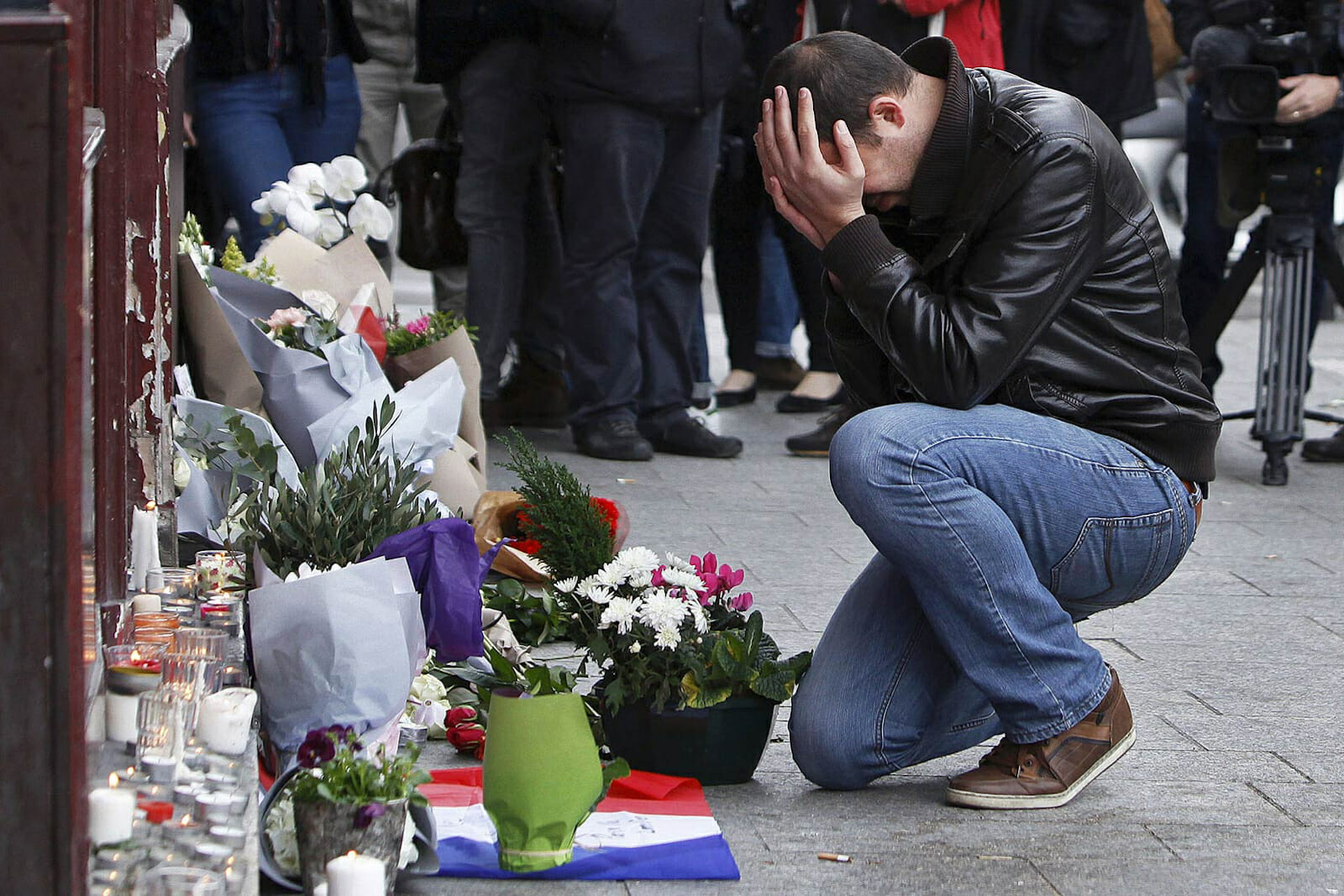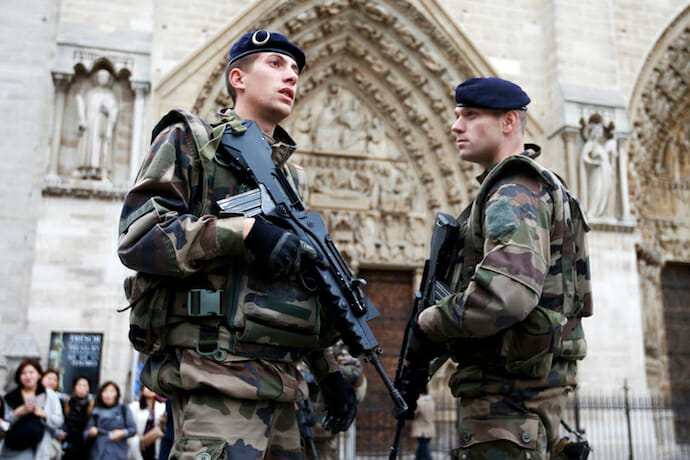
Business
Business and Government Must Work Together to Enhance Global Security
One of the most important reminders of the slaughter in Orlando and San Bernadino is that terrorists often prefer to attack “soft” targets because they usually lack strict security, and there are many more soft targets than hard targets. This is hardly a new phenomenon, with hotels (in Jakarta and Mombassa), restaurants/night clubs (Bali and Tel Aviv), museums (Tunis), places of worship (Istanbul), trains (Madrid) and buses (France, Israel and Turkey) all having been prime targets in the past. This being the case, greater effort should be made to implement at least minimal security for soft targets that have proven to be particularly appealing to terrorists. If this can be done in developing countries with meager financial resources, it is certainly achievable in the developed world.
In many parts of the world, the entrances to metro rail systems are checked, as are entrances to department stores, office buildings, and shopping centers. Security personnel check everyone’s bag or purse as individuals enter. Is this a guarantee that a gun or bomb will not be smuggled onto a train? Of course not, but apart from providing at least some peace of mind, it is a sufficient deterrent to prevent would-be terrorists from attacking with impunity. Had such a system been implemented in many of the above-mentioned examples, most, if not all, of the attacks may have been thwarted, or their severity at least significantly reduced.
This implies a greater effort on the part of businesses and government working in tandem to adequately address the problem, for neither have sufficient resources to do so on their own. Since businesses’ and governments’ approaches to addressing the issue of security are generally not in sync, all parties need to have incentives and guidelines in place so that they may act in a consistent and effective fashion. Increasing safeguards and enhancing general awareness is a precursor to meaningfully addressing the persistent nature of the threat, but this can have unintended consequences.
For example, for many years following the 9/11 attacks, the U.S. was on ‘orange’ alert, meaning that an attack could happen at any time, and that the threat was ever present. However, after the passage of time, average citizens began to pay little attention to the threat, particularly given that no attacks had occurred. Similarly, though we are collectively appalled and sensitized to the risks of terrorism each time an incident occurs, most of us believe that the law of averages is on our side, and that the risk of actually becoming a statistic of terrorism is extremely low – and it is. We therefore go about our lives with terrorism perhaps being in the back of our minds, as an unfortunate reality of the 21st century, but usually thinking it will end up being someone else’s problem, or not thinking about it at all until the next attack occurs.
That is now changing. Attacks on soft targets are becoming more commonplace, and will become even more so with the passage of time. Just as climate change and cyber risk are no longer someone else’s problem, half a world away, the era of global terrorism is upon all of us, and impacts us on a daily basis in ways we could not even have imagined 15 years ago. Security protocols have indeed come a long way since then, but we have a very long way to go before we can say that we really are doing a reasonable job of making ourselves not just feel more secure, but be more secure.

Reducing the possibility that an attack can occur, will be successful, or will cause significant damage by enhancing security protocols goes hand-in-hand with changing perceptions that an attack may occur at all. There is also a risk that constantly increasing security spending may both enhance the cost of an attack and reverse any gains made in changing risk perceptions if an attack occurs and is successful.
Spending the money necessary to reduce vulnerability to attack is perhaps the greatest challenge facing developed country governments and businesses. This is because most developed countries did not construct infrastructure and buildings with the type of security safeguards necessary to thwart terrorist attacks. When power transmission sub-stations, railroad tracks or office buildings were constructed, security was not a foremost consideration. The truth is, most developed countries remain highly vulnerable to attacks on soft targets. One of the ironies in the terrorism landscape is that this same type of concern is not as pronounced in many developing countries, where security was always a primary concern.
Will countries in the developed world that currently do not have security systems and personnel in place in shopping malls, movie theaters, office buildings, and other public places ultimately need to as many developing countries have done? The answer is “yes.” And businesses should be prepared to share the cost of implementing these measures. If governments and businesses are to win the battle against terrorism, they must adopt a completely proactive stance–anticipating likely targets, substantially beefing up security, and establishing countermeasures to prevent future attacks from occurring.
While Western governments have, by and large, done a credible job of enhancing their ability to identify terrorists and prevent them from entering countries through airports and ports, they have not done as good a job at creating and implementing effective countermeasures among soft targets. It really is surprising that more attacks among soft targets have not happened in the West and the U.S. since 9/11. Undoubtedly, part of that is due to the intelligence agencies being very good at what they do, but part of it also is that the terrorist have fumbled more than once (the Shoe Bomber and the Underwear Bomber being prime examples). Now that lone wolves have permeated the landscape, the urgency of the issue is growing by the day.
What needs to be done? Border controls and identity checks must become even greater, intelligence sharing across borders must become easier and more comprehensive, and background checks on gun owners need to become routine. Countries that are unaccustomed to implementing strict security precautions on their citizenry will need to begin doing so. Since it appears likely that the days of being able to casually walk into a shopping center without undergoing a security check are numbered, it would be sensible for business leaders to engage in a discussion with governments about how this is going to be accomplished – now. The sooner this is done, the sooner the general public will be conditioned to accept the inevitable–we face a future when security will saturate many aspects of our daily routines, whether dining in a restaurant, boarding a bus, or entering an office building.
Terrorism has and will continue to affect how business operates, and how much it costs to operate. It has become necessary for businesses to begin to bear the cost of installing security systems and personnel to safeguard their customers and employees on a widespread basis. Businesses and governments must reach an understanding about how the problem of providing meaningful security is going to be addressed in the future. A coordinated, purposeful, definitive approach to creating a more secure environment must be achieved if the West is to stay a step ahead of the terrorists.
It is surely in the mutual interest of business and government that this occurs sooner rather than later. Businesses may as well embrace the reality that providing funding to achieve meaningful security to protect their physical operations, employees, and customers is not only necessary, but also a smart investment. All one needs do is consider the enormous costs implied in enduring political violence, terrorism, or business interruption losses–and the heightened insurance premiums that result from them–to realize that preventive action is prudent, sensible and cost-effective in the long term. More importantly, businesses have a moral obligation to help ensure the safety of their employees and patrons, and businesses are already being held accountable for not enhancing their security protocols. It is time to get out ahead of this issue, for the costs of waiting can only rise.

